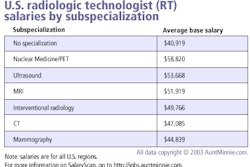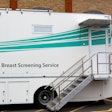Physicians are perhaps the only professionals whose requests for payment are routinely denied. When attorneys or accountants submit invoices, clients may quibble about details or ask for adjustments to the bill, but rarely do they send invoices back and mark them "denied."
Unfortunately, denials are business as usual for radiologists and many other types of physicians. Radiologists are particularly vulnerable because of the intricacies involved in billing and collecting payments for diagnostic work. In the past, many radiologists simply discounted denials as a nuisance not worth pursuing.
However, in an era of shrinking reimbursements and a more aggressive stance from Medicare and other third-party payors, radiologists can no longer afford to write off denials. Indeed, some radiology groups are losing up to 20% of available reimbursements by not pursuing denied claims.
There are a variety of reasons why claims are denied, and a variety of ways to collect payment, including:
Lack of focus. Some radiologists and groups simply are not attuned to the number of denials they are getting or to the financial implications of denials. The first step is to determine that yours will be a zero-denial practice -- or as close to that target as possible.
Claims denied for diagnosis. The reason payors commonly give for denying payment for diagnostic services is that the procedure performed is not consistent with the diagnosis. This can frequently be attributed to poor communication between the radiologist’s office and the referring physician. In one case, a patient was referred for a mammogram though the diagnosis was cellulitis of the foot.
More commonly, if an x-ray should come back normal and the referring physician has provided no explanation for why it was ordered, the claim may be denied. The referring physician, billing department, coding department, and the radiologist must maintain clear communication so that it can be demonstrated that procedures performed are consistent with the diagnosis.
Billing personnel must also have an in-depth understanding of each insurance contact the group or physician holds in order to properly process each payment while taking the negotiated adjustment. Once the correct diagnosis is matched with the denied claim, it is resubmitted. And in 85% of cases, such claims are approved the second time.
Patient identification. Incorrect patient identification is another common cause of denials. During the admittance process a patient might provide the wrong Social Security number to the clerk by mistake, or a female patient might give her married name while her insurance policy is in her maiden name. Typing errors may be responsible, or the patient may have simply not provided enough information during the admitting process. In such cases, billing personnel must research the patient’s file to identify where the misidentification occurred, determine the patient’s actual ID information, and resubmit the claim.
Duplicate denials. These can occur when patients need to have the same procedure, such as a chest x-ray, done more than once a day. Some insurers want each procedure listed separately with a specific modifier, while others want the procedure listed only once with the units box marked to reflect how many times the procedure was performed. If claims are not submitted to the insurer’s specifications, they will be denied.
Occasionally, human error is to blame when an individual charge is accidentally keyed in twice. Billing personnel need to know the preferences of each insurer and be able to review documents for keying errors. A corrected claim and a letter explaining the error should be sent to the insurance company, which in the great majority of cases will then approve the claim.
Prior authorization. This type of denial is perhaps the most infamous. If the patient, facility, or physician does not contact the insurance company prior to an MRI or CT scan or other procedure to gain authorization, the claim will likely be denied. Though this type of denial often gets insurance companies painted in a harsh light, they generally can be reversed through calls to the company. The prior-authorization rule will be waived if it can be demonstrated that the procedure was medically necessary.
Workers Compensation. These claims commonly are denied when a copy of a requested dictation report is not attached to the claim upon submission. Once a denial is received, the relevant dictation report must be located and sent to the insurance company so that the claim can be processed as efficiently as possible.
Denial for referring physician information. Once a physician orders a procedure for a patient, the patient has the right to undergo the procedure at the facility of his or her choice. A patient may choose to have procedures at a facility that is not familiar to the referring physician, and will not have all of the physician’s necessary information. In addition, the facility may not have information on physicians new to the area. Upon receiving a denial of this kind, billing personnel should contact the referring physician to obtain the necessary information, complete the claim correctly, and resubmit it.
In summary, denials are like multiple cracks in a leaky dam. You fix one, but another springs up, and then another. The amount of water lost from each leak may not appear great, but if the leaks aren't plugged the losses become quite significant. The solution is constant vigilance and constant spadework to ensure that such "cracks" are kept to a minimum. Billing isn't the most glamorous aspect of a medical practice, but it is one that physicians cannot afford to ignore.
By Cindi DukesAuntMinnie.com contributing writer
March 13, 2003
Cindi Dukes is president of DRS, a Jennings, LA-based medical billing and coding firm specializing in radiology. She can be reached at 888-871-1500 or at [email protected].
Related Reading
Strategic planning builds practice power, January 10, 2003
Due diligence builds imaging center muscle, December 19, 2002
Demystifying the internal auditing program, July 16, 2002
Revenue optimization, compliance assurance provide practice Rx, July 15, 2002
Do you know who is minding the codes? March 27, 2002
Copyright © 2003 DRS



















